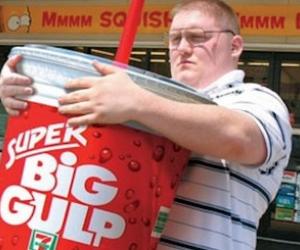
The study falls in line with previous research suggesting that poor families with food stamps often have much higher rates of obesity and diabetes compared to the rest of the population, according to CNN. The study also serves as a reaction to the criticism that the Supplemental Nutrition Assistance Program (SNAP), provides groceries of no nutritional value.
“There are complaints that [taxpayers] are getting charged twice, once for the SNAP program and then again for the Medicaid and Medicare costs when people get diseases,” said Sanjay Basu, an assistant professor of medicine at the Stanford Prevention Research Center.
As some politicians in the U.S. continue to pitch their cases for and against soda taxes, The Coca-Cola Co. continues to test innovation overseas. And even a brand as firmly established as Coke realizes that it must adapt to meet emerging consumer demands. This explains the company’s experiments with Coca-Cola Life, a cola sweetened with sugar and stevia.

“With Coca-Cola Life, we have innovated to provide consumers with a new option with fewer calories. We were early signatories to the UK government’s Responsibility Deal,” said James Quincey, president of Coca-Cola Europe, according to the article.
Meanwhile, the carbonated soft drinks category isn’t the only one in need of adaptations. A recent story by CBS reports that sales of fluid milk have plummeted to lows unrivaled since the early 1980s.
The dairy industry seems to be worrying that younger generations are getting used to not drinking milk, even flavored milk, perhaps using the line: “no milk will ever be our milk.”
“The nation’s schools are a critical market for the industry, representing about 7 percent of total milk sales, most of which are flavored,” CBS reports. “But that market has come under attack by some activists who question whether the added sugar in chocolate milk is worth the nutritional benefits milk provides.”
Legislators in Connecticut recently banned chocolate milk from school lunchrooms. A recent study published by Cornell University found that when schools in Oregon eliminated chocolate milk from their menus, many children who bought plain milk threw it away, leading to a 29 percent increase in waste.
Other beverage news:
After LeBron James cramped in Game 1 of the NBA Finals, Gatorade had some snappy reactions through social media in regards to the baller who isn’t their client. However, the company has since stepped away from the comments. “Our apologies for our response to fans’ tweets during [Thursday] night’s Heat vs. Spurs game. We got caught up in the heat of the battle. As a longtime partner of the Miami Heat, we support the entire team.”
After the Beastie Boys won $1.7 million in their case against Monster Energy, the energy drink company responded with a statement, according to music publication Pitchfork. “Although Monster Energy has great respect for the verdict of the jury, we strongly disagree with it. We will make an application to the Court to set aside the verdict and we intend to file an appeal. From the inception, Monster Energy has been willing to resolve this matter in a fair and equitable manner and we will continue to make additional efforts to reach a just resolution of this dispute.”
Speaking of musicians from another era, Mariah Carey has launched a new beverage called “Butterfly” in collaboration with Kevin Liles, CEO of G N’Syde. The pink liquid contains water, sugar, sodium benzoate, sucralose and colorings including Red 40 and Blue 1. According to The Los Angeles Times, Carey described the beverage as “a whole ‘nother thing.”